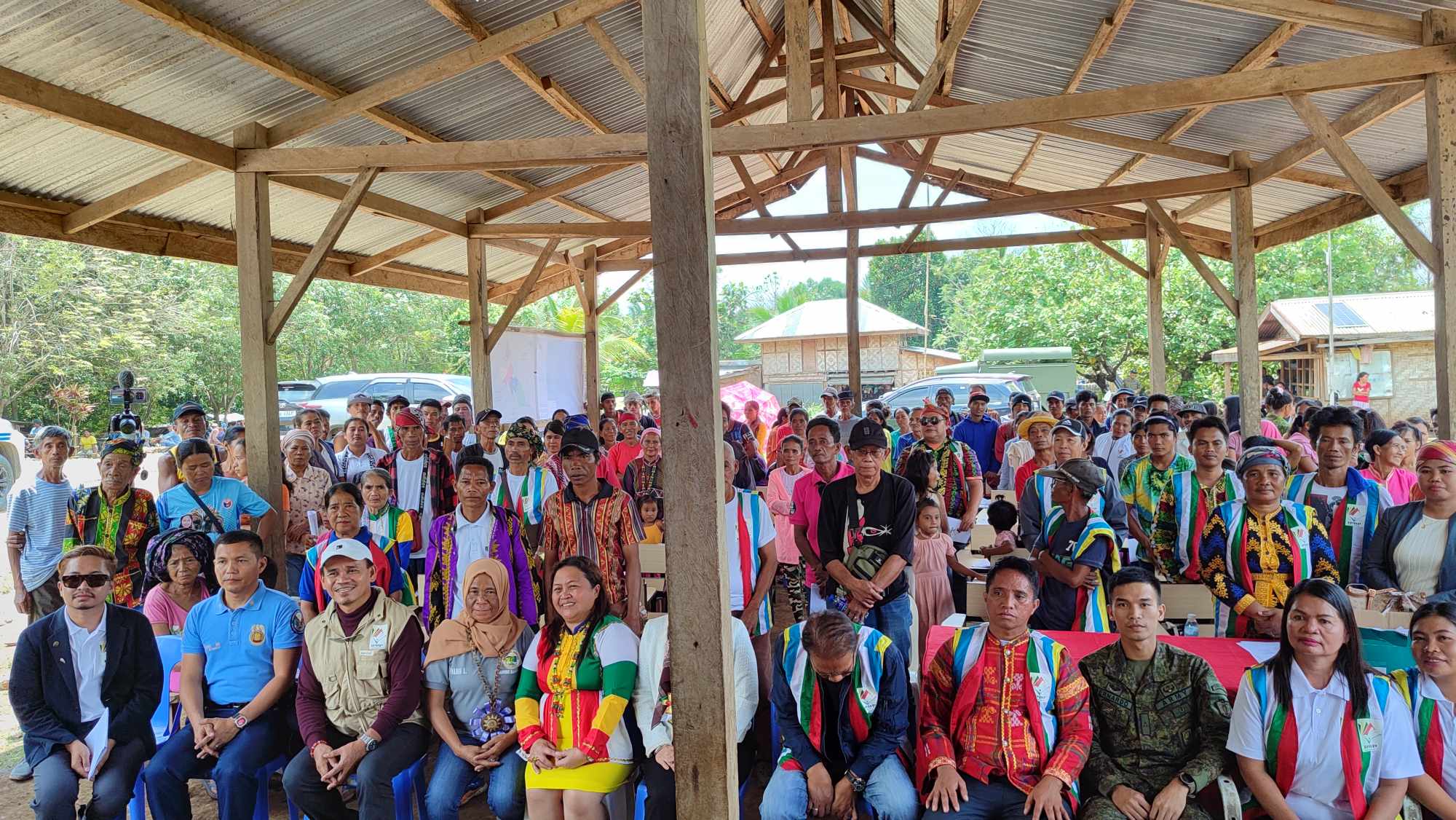
Kabengi, Datu Saudi Ampatuan, Maguindanao Del Sur — August 1, 2024 The Indigenous Peoples Democratic Party (IPDP) successfully conducted its Provincial Assembly for Maguindanao Del Sur on August 1, 2024, in Kabengi, Datu Saudi Ampatuan. The event attracted around 500 attendees from various barangays in the SPMS Box and Firis Complex, demonstrating significant community engagement and support. The assembly commenced with IPDP General Secretary Deonato Mokudef, who provided the background and rationale for the event. His address set the stage for a day filled with meaningful Following Mokudef, IPDP Read More
Party President Froilyn Mendoza presented the party's agenda, outlining the key priorities and future plans for the party. Mendoza's presentation emphasized the importance of Indigenous Peoples' representation and the party's commitment to advancing their rights and interests. A highlight of the event was a lecture on the Bangsamoro Electoral Code and its Implementing Rules and Regulations (IRR), delivered by Provincial Election Officer III Maceda L. Abo, RN, SH. C. JD. Abo's lecture provided attendees with crucial information on the electoral process, ensuring they are well-informed and prepared for upcoming elections. The event received overwhelming support from the local government, represented by Bai Najah Utto, the Barangay Chairperson of Sitio Kabengi. The presence of the Philippine National Police and the Philippine Army provided additional security, ensuring the safety and smooth conduct of the assembly. The successful assembly marks a significant milestone for the IPDP, highlighting the strong support and active participation of the Indigenous Peoples in Maguindanao Del Sur. The party remains committed to advocating for the rights and representation of Indigenous communities within the political landscape of the Bangsamoro Autonomous Region.
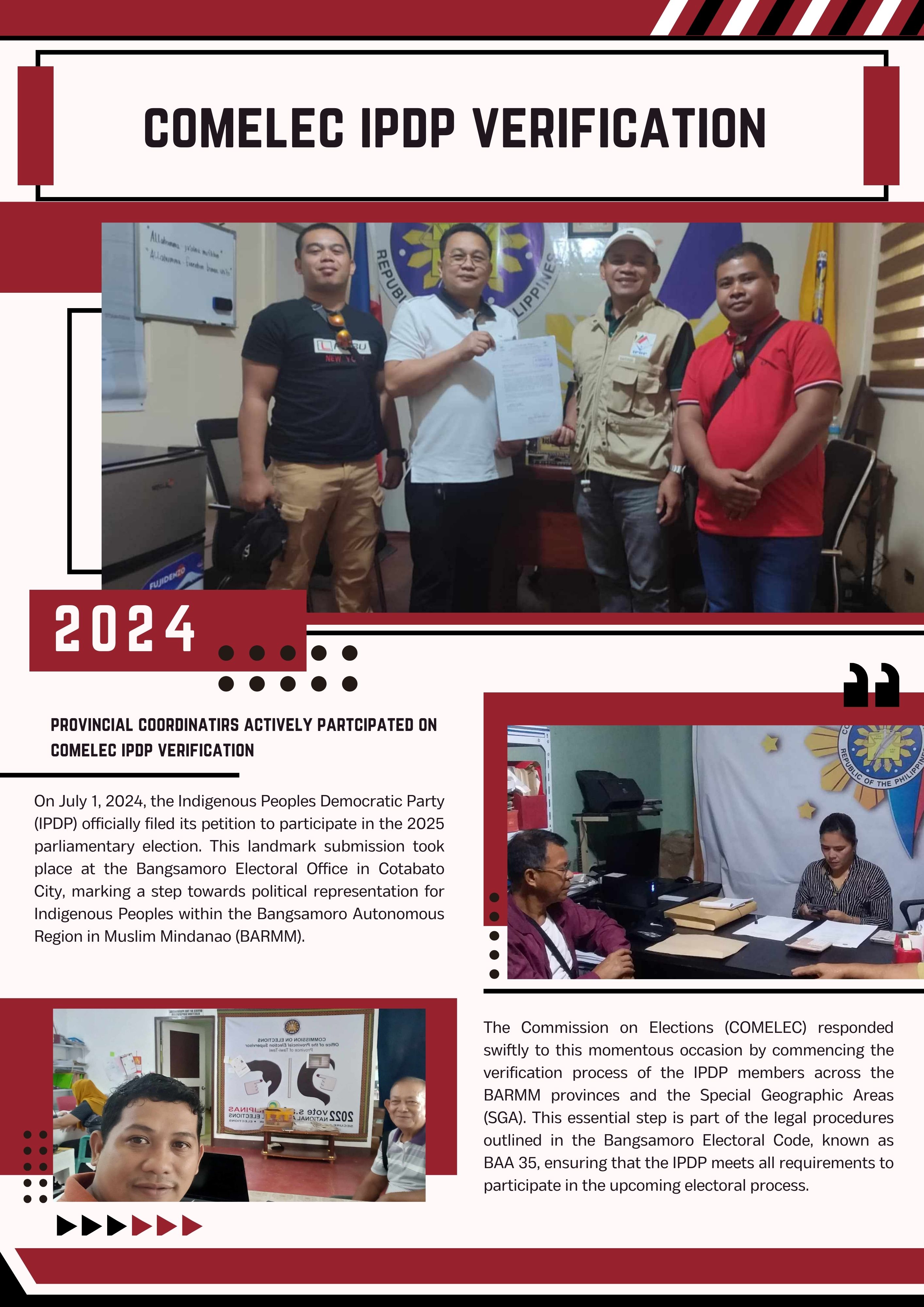
On July 1, 2024, the Indigenous Peoples Democratic Party (IPDP) officially filed its petition to participate in the 2025 parliamentary election. This landmark submission took place at the Bangsamoro Electoral Office in Cotabato City, marking a step towards political representation for Indigenous Peoples within the Bangsamoro Autonomous Region in Muslim Mindanao (BARMM). The Commission on Elections (COMELEC) responded swiftly to this momentous occasion by commencing the verification process of the IPDP members across the BARMM provinces and the Special Geographic Areas (SGA). This essential step is part of the legal Read More
procedures outlined in the Bangsamoro Electoral Code, known as BAA 35, ensuring that the IPDP meets all requirements to participate in the upcoming electoral process. The IPDP's participation in the 2025 election is not only a first for the Indigenous Peoples but also a testament to the strides made towards inclusivity and representation in the Bangsamoro region. As the first Indigenous Peoples political party in BARMM to engage in the electoral process, the IPDP's involvement signals a new era of political empowerment and self-governance for Indigenous communities. During the verification, the IPDPs provincial and city coordinators actively participate in this process.
The Indigenous Peoples Democratic Party (IPDP) has officially filed petitions for registration and accreditation in anticipation of the first-ever parliamentary election in the Bangsamoro Autonomous Region in Muslim Mindanao (BARMM) set to take place in 2025. This landmark event marks a significant step in the region's political evolution, aiming to establish a parliamentary system that reflects the diverse interests and identities within BARMM. The IPDP, representing the indigenous communities in the region, seeks to ensure that their voices are heard and their rights protected within the new parliamentary Read More
framework. Their participation underscores the importance of inclusive governance in fostering regional peace and development with their petitions filed, the IPDP is poised to play a crucial role in shaping the future of BARMM, advocating for policies that honor and uplift the indigenous peoples of Bangsamoro.
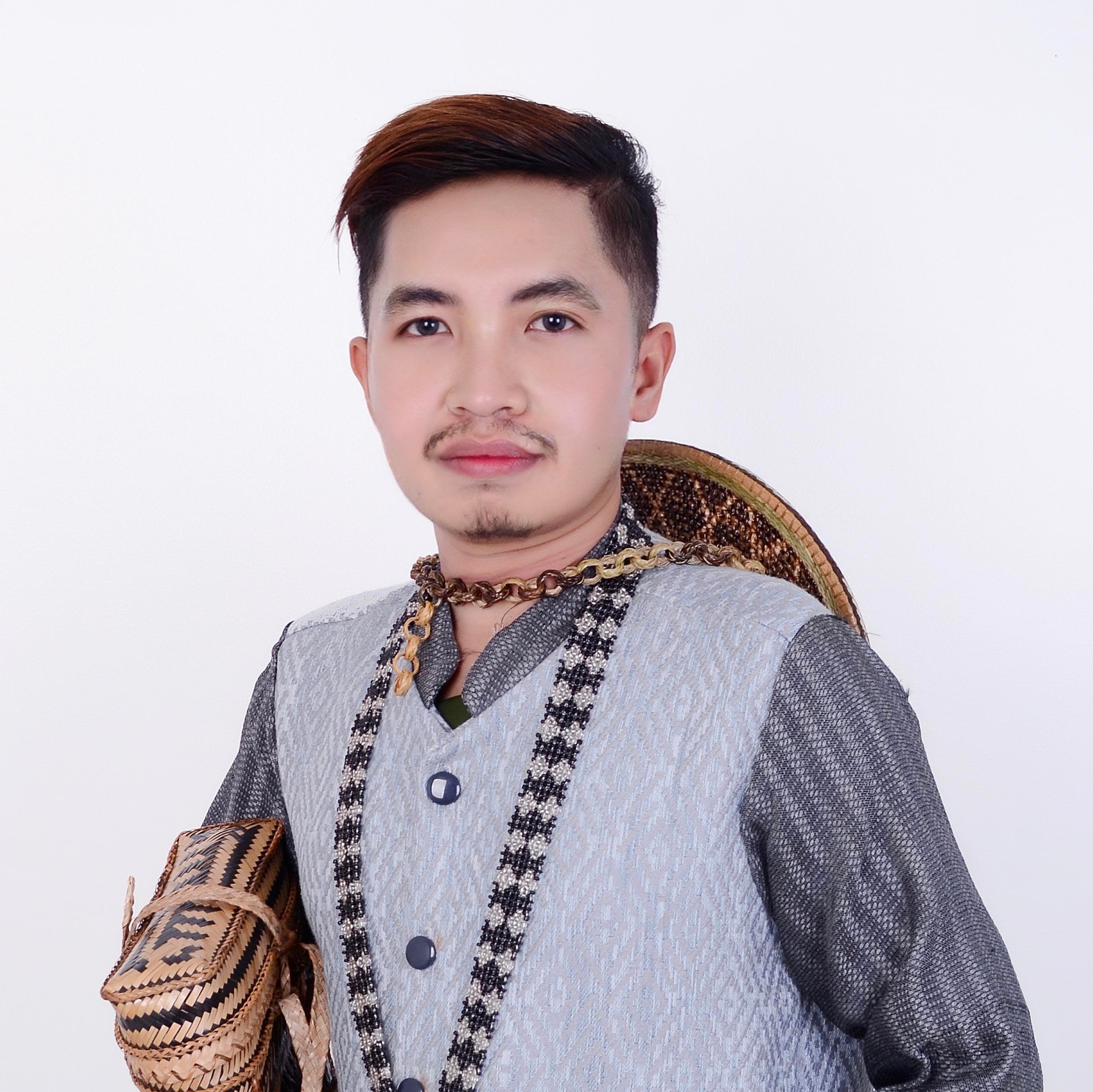
Edward is a youth leader from the Tëduray Indigenous Peoples in the heart of the Bangsamoro Autonomous Region in Muslim Mindanao. A trailblazer since his high school and college days, he finished his High School in Canizares National High School. He served as a consecutive Student Legislator of the Supreme Student Government and the Editor-in-Chief of the Natus Vicere of Cotabato State University Student Year Book in 2015 and engaged with various university organizations where he displayed his leadership prowess. In 2015, Edward completed his tertiary education at Cotabato Read More
State University, earning a Bachelor of Secondary Education majoring in English and Literature. Notably, he was recognized as an Academic Related Services Awardee, highlighting his exceptional academic achievements. Edward's thirst for knowledge led him to pursue an academic vocational course on Job Enabling English Proficiency (JEEP) under the United States Aid Program in 2012. Furthermore, he completed his International Study for Sustainable Development Course at Victoria University of Wellington (Te Herenga Waka) in Aoteroa New Zealand in 2023. He is currently attending his Juris Doctors at Rizal Memorial Colleges - School of Law in Davao City. His dedication to uplifting his community and advocating for Indigenous Peoples' rights is evident in his extensive involvement in various organizations. Edward has been a Co-Founder of the United Indigenous Peoples Youth Organization since 2016 and has served as the Chairman of the Network of Non-Moro Indigenous Peoples Network since 2019 and a volunteer of the Non-Moro Indigenous Peoples Coordinating Council tasked to advocate and oversee the IP rights in the BARMM and Philippines as a whole. Additionally, he was selected as one of the active Indigenous Peoples Champions in the Institute for Autonomy and Governance's program, in partnership with IDEA. In 2022, during the United Nations International Decade of Indigenous Peoples Language (2022-2032) celebration, Edward presented his groundbreaking study on "The Verbal Morphology of Tëduray Indigenous Peoples Language" at the University of the Philippines, organized by Tebteba, Sugpat, and UP Diliman College of Linguistics. Alongside his dedication to volunteering for development organizations, Edward currently serves as a Public Servant - Political Affairs Officer VI in the Legislative Division of the Bangsamoro Transition Authority (BTA) under the Office of Member of Parliament Froilyn T. Mendoza. As an advocate of Indigenous Rights, his project GUKIT - Edward's unwavering belief in the power of politics as a pillar of society has fueled his advocacy for Indigenous Peoples' representation and autonomy. Recognizing the underrepresentation of Indigenous Peoples in political decision-making processes, he strives to protect their ancestral domain, cultural rights, and self-governance within the newly established political entity, the Bangsamoro Region. Edward is a force to be reckoned with, making a lasting impact on the journey toward a more inclusive and equitable society.
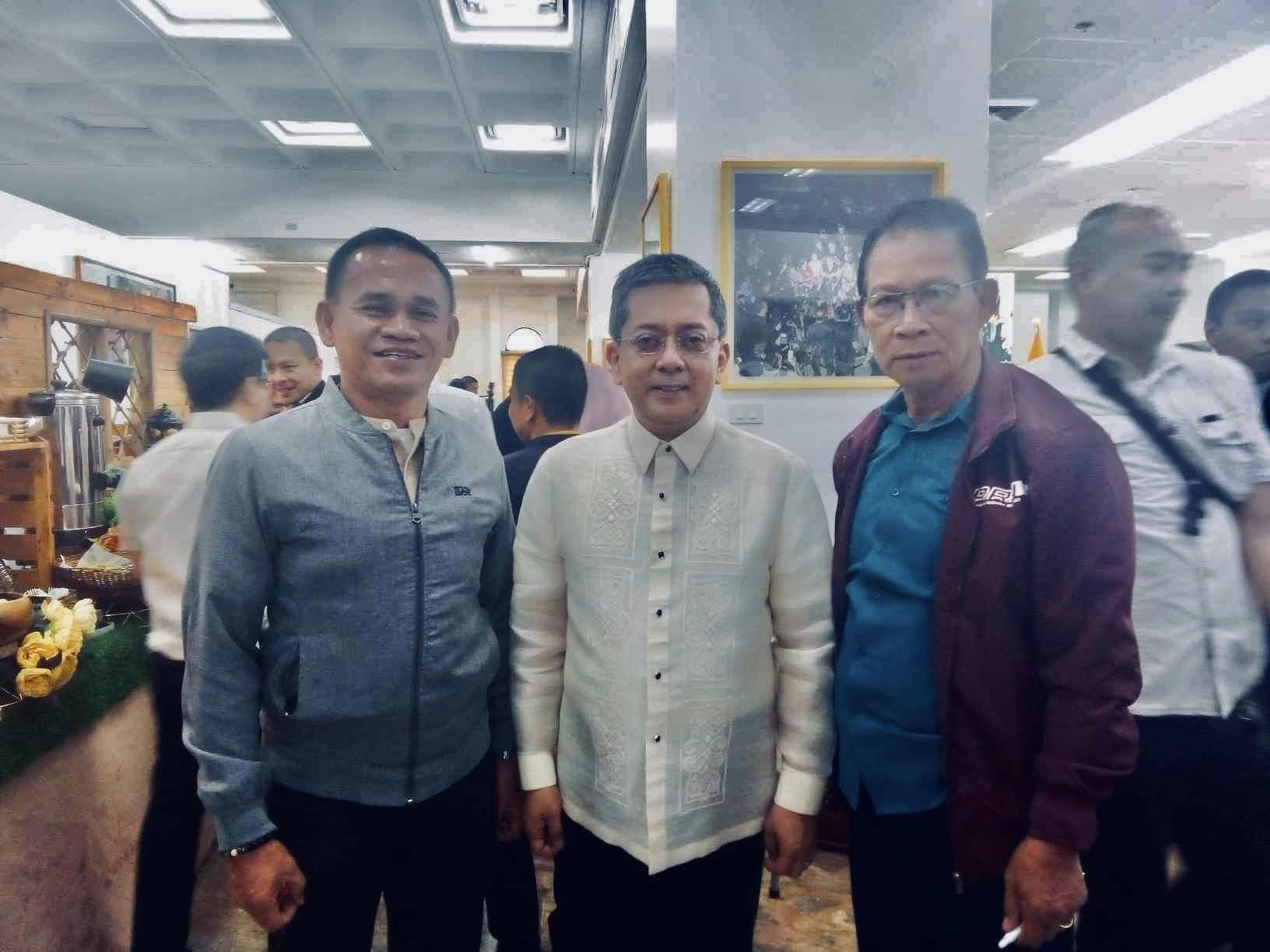
The Indigenous Peoples Democratic Party - IPDP participated in a Multiparty Democracy Summit on June 3, 2024, in Manila, Philippines, organized by the Commission on Election (COMELEC) and the Participate (BARMM). The event familiarized upcoming regional political parties with the key components of the BEC IRR. The event gives newly formed regional political parties a forum for talking about and bringing up significant issues by the BEC's and its IRR's regulations on the formation of regional political parties; and delivers COMELEC updates on the 2025 BARMM parliamentary election Read More
preparations to newly formed regional political parties.
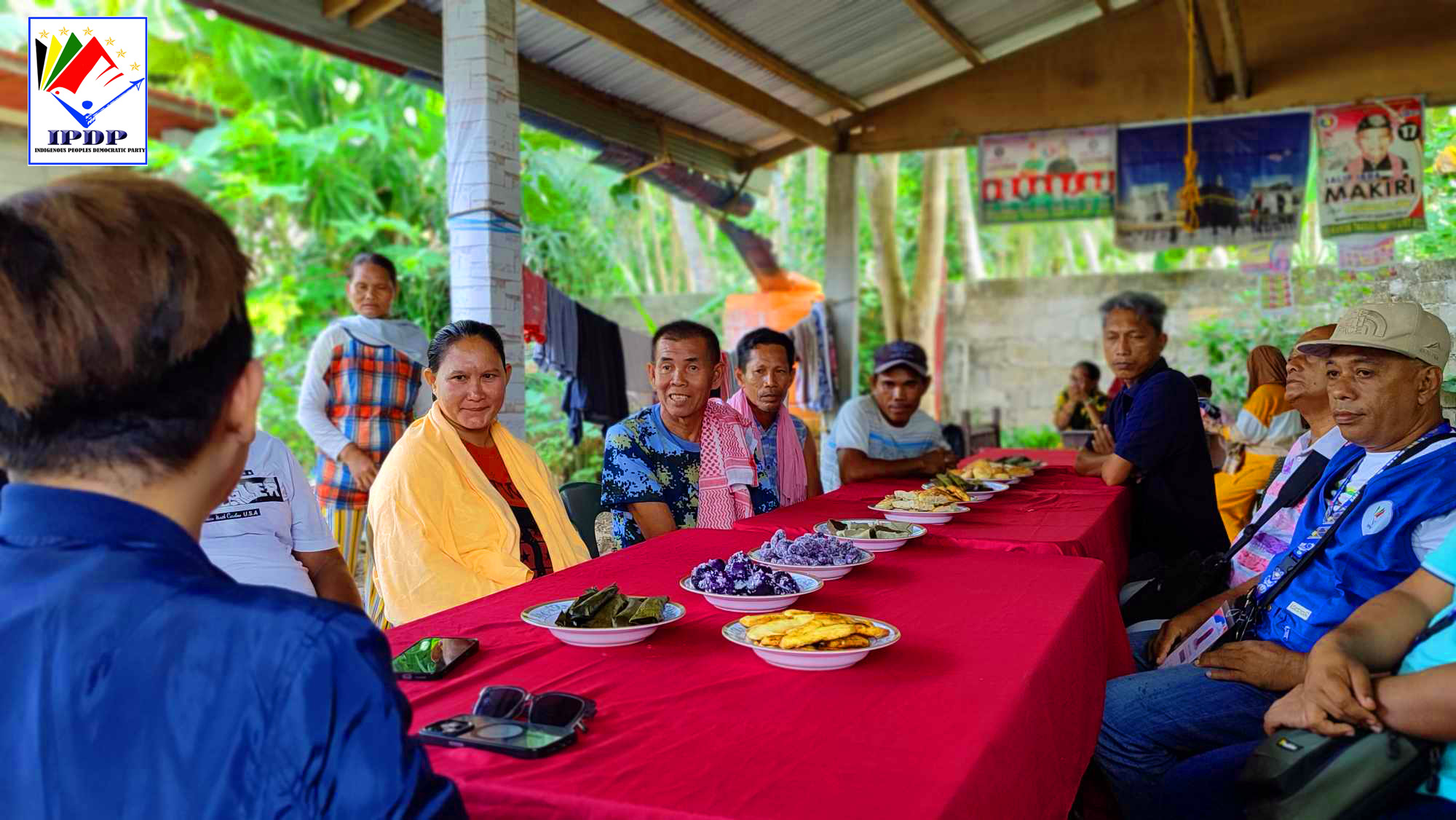
The provincial consultation in Jolo, Sulu, organized by the IPDP team under the leadership of Chairperson Froilyn T. Mendoza, represents a pivotal moment in the ongoing journey towards the empowerment and recognition of Indigenous Peoples in the Philippines. From January 15 to 18, 2024, this event served as a platform for dialogue and collaboration among key stakeholders, laying the groundwork for advocacy and policy reform tailored to the specific needs of Indigenous communities in the island province of Sulu. The consultation began with a gesture of respect and diplomacy as Read More
the IPDP team met with Chairman Shariff Ibrahim Makiri in Nunukan, Parang. This initial courtesy meeting set a tone of mutual understanding and cooperation, essential for meaningful engagement with Tribal leaders and community members. Central to the consultation was the engagement with Tribal leaders from the Sama and Badjao tribes, whose insights and perspectives provided invaluable guidance for shaping advocacy efforts. These leaders, representing the cultural richness and diversity of Sulu, articulated the pressing issues facing their communities and voiced their aspirations for a better future. Among the critical issues discussed during the consultation were peace and security, access to education, and sustainable livelihoods. The participants, including 250 individuals from the Badjao tribe, expressed their concerns about the prevailing challenges and emphasized the urgent need for action. In particular, there was a resounding call for enhanced access to education, recognizing it as a pathway to empowerment and socio-economic development. One of the most compelling proposals to emerge from the consultation was the establishment of a Tribal Hall—a symbolic space dedicated to celebrating the rich cultural heritage of the Badjao people. This proposed hall would not only serve as a physical gathering place but also as a center for the preservation of traditions, the administration of justice, and the resolution of local issues. Edward Abelardo, in his address during the consultation, highlighted the significance of political participation for Indigenous Peoples in the democratic processes of the BARMM and the Philippines at large. He emphasized the importance of leveraging legislative frameworks to address historical marginalization and promote inclusive governance. The culmination of the consultation was marked by the oath-taking ceremony of newly selected volunteers and IPDP focals at the provincial, municipal, and barangay levels. This solemn commitment underscored the dedication of individuals to actively contribute to the advancement and empowerment of Indigenous Peoples in the region. Beyond the immediate outcomes of the consultation, its significance lies in the seeds of transformation it has sown. By fostering dialogue, collaboration, and collective action, the event has laid the groundwork for a more inclusive and equitable future for the Indigenous Peoples of Jolo, Sulu. It represents a tangible step towards realizing the rights and aspirations of Indigenous communities and building a society where diversity is celebrated and respected. Looking ahead, the momentum generated by the consultation must be sustained through continued engagement, advocacy, and policy implementation. Efforts to address the identified challenges, such as education, livelihoods, and cultural preservation, must be pursued with a sense of urgency and commitment. Moreover, partnerships between government agencies, civil society organizations, and Indigenous communities will be crucial for driving meaningful change and ensuring that the voices of Indigenous Peoples are heard and respected in decision-making processes. In conclusion, the provincial consultation in Jolo, Sulu, stands as a beacon of hope and progress in the journey towards Indigenous rights and empowerment in the Philippines. It is a testament to the resilience, determination, and spirit of collaboration that define the Indigenous Peoples of Sulu and serves as a reminder of the transformative potential of collective action and solidarity.

The Indigenous Peoples Democratic Party (IPDP) is embarking on an ambitious mission in Maguindanao Del Sur and Norte, led by a passionate and dedicated team comprising individuals such as Danilo Guid, Arlene Catuyan, Michelle Pablo, Joeoffrey Tenorio, and Pipoy Banaga. Their goal? To mobilize community support through the recruitment of political party members. This initiative is not limited to the mainland of the Bangsamoro Autonomous Region in Muslim Mindanao (BARMM) but also extends to the island provinces, aiming to gather a substantial membership base of 10,000 individuals. At the heart Read More
of this initiative lies a profound belief in the power of active political participation to drive the empowerment of Indigenous communities. By encouraging community members to join the political party, the IPDP seeks to elevate their voices, ensuring that their concerns and aspirations are heard and addressed within the political arena. Under the guidance of leaders like Danilo Guid, the team is actively reaching out to the residents of Maguindanao, striving to raise awareness about the significance of political engagement. Through a variety of methods such as community meetings, discussions, and outreach programs, they are working tirelessly to build a diverse and inclusive membership base that accurately reflects the myriad perspectives and experiences within the region. This initiative goes beyond mere recruitment; it is about fostering a sense of ownership and agency among Indigenous peoples, empowering them to actively shape the political landscape that directly impacts their lives. By becoming active participants in the political process, community members can advocate for policies and initiatives that address their unique needs and challenges, ultimately driving positive change and progress in their communities. Moreover, this mobilization effort serves as a platform for unity and solidarity among Indigenous peoples, providing them with a collective voice and platform for advocacy. Through solidarity and collective action, they can amplify their impact and effect meaningful change on a broader scale. The success of this initiative hinges not only on the recruitment of members but also on the ongoing engagement and support provided to these individuals. The IPDP team is committed to providing resources, training, and guidance to empower members to become effective advocates and leaders within their communities. In essence, the mobilization of community support through political party membership represents a crucial step towards the realization of Indigenous rights and empowerment in Maguindanao Del Sur and Norte. It is a testament to the resilience, determination, and unity of Indigenous peoples in their quest for justice, equality, and self-determination. Through collective action and political engagement, they are forging a path towards a brighter and more inclusive future for themselves and future generations.